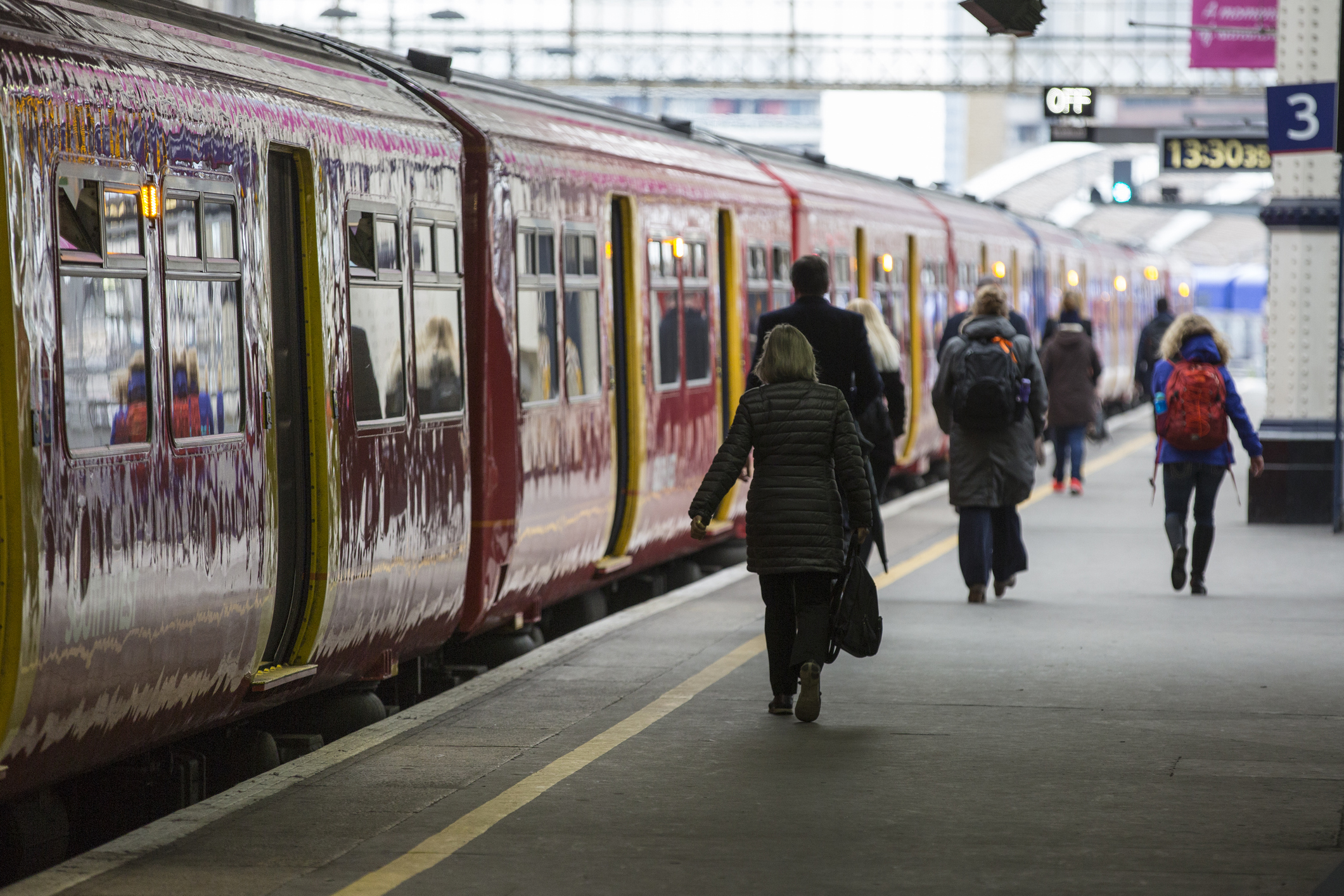Rail fares could spike by 5.8% next year – how to save on train travel
July’s RPI inflation reading tends to determine rail fare hikes in the following year. We look at how much your train tickets could cost, and how to save money


Get the latest financial news, insights and expert analysis from our award-winning MoneyWeek team, to help you understand what really matters when it comes to your finances.
You are now subscribed
Your newsletter sign-up was successful
Want to add more newsletters?

Twice daily
MoneyWeek
Get the latest financial news, insights and expert analysis from our award-winning MoneyWeek team, to help you understand what really matters when it comes to your finances.

Four times a week
Look After My Bills
Sign up to our free money-saving newsletter, filled with the latest news and expert advice to help you find the best tips and deals for managing your bills. Start saving today!
Rail fares could increase by 5.8% in 2026 in another blow for Brits hoping to keep costs down.
Rises in rail fares are traditionally calculated from July’s inflation data, using the Office for National Statistics’ Retail Price Index (RPI) and adding one percentage point. RPI came in at 4.8% in July, one percentage point higher than CPI.
Though the government is yet to announce how they will regulate increases for next year’s rail fares, if they stick to the way the calculations were made previously, we can expect that rail fares will far outpace inflation and rise by 5.8% in 2026.
MoneyWeek
Subscribe to MoneyWeek today and get your first six magazine issues absolutely FREE

Sign up to Money Morning
Don't miss the latest investment and personal finances news, market analysis, plus money-saving tips with our free twice-daily newsletter
Don't miss the latest investment and personal finances news, market analysis, plus money-saving tips with our free twice-daily newsletter
Inflation hit an 18-month high of 3.8% in July – far above the Bank of England’s 2% target.
Assuming a rise of 5.8% goes ahead, this would add £247 to the price of an annual season ticket from London to Woking, which was recently named the top commuter town to the capital, bringing it from £4,260 to £4,507.
Elsewhere in the country, an annual season ticket from Sheffield to Rotherham could rise by £41, from £712 a year to £753.
With such a steep fare increase not ruled out by the government, campaigners have called on ministers to spare commuters from increased costs.
Paul Kohler MP, Liberal Democrat spokesperson for transport, urged the government to freeze fares.
He said: “Rail passengers are already paying sky-high prices for overcrowded trains and unreliable services. Hiking fares yet again would be a betrayal of passengers who are simply trying to get to work, travel to school or visit family and friends.
“Families and hardworking commuters are being hit with the cost of living crisis month after month, and now face being ripped off on the railways too. Pricing people off the trains will only drive more cars onto our congested roads, increase pollution and damage our economy.”
These sentiments were echoed by Ben Plowden, chief executive of the Campaign for Better Transport, who pointed out that the government will have increasing agency over how much rail fares rise.
“With the railways now moving under public control, the fundamental question for the Government is how to use its role in setting fares policy to deliver a more affordable rail network and encourage more people to travel on it,” he said.
“Next year’s annual rise represents the first real opportunity for the Government to show passengers – both current and future – just how it plans to do this.”
With a fare rise seeming likely, we look at some ways that you can save money on your rail fares.
How to save money on your rail fares
If rail fares are adjusted in the ways they were in previous years and climb by 5.8%, this would be felt universally on all types of tickets and routes.
However, while you may not be able to escape the blanket increase, there are some tricks that can help you save money on your train tickets.
Railcards
One of the most popular ways to do this is by purchasing a railcard. These are discount cards that can be bought by certain types of travellers for around £35. They give the holder a discount of around 33%.
While all people aged 16 to 30 and over 60 qualify for them, people who are aged in between these figures may find it more difficult to buy them – but there are some options.
For example, if you regularly travel with another person you could get a Two Together Railcard, which slices fares by a third so long as you are with the person you name on the card.
The official railcard website has a tool which helps you find the best railcard for you.
Split your tickets
Another popular way to drive down the price of your train tickets is by splitting up your journey across different tickets. While this can often result in cheaper tickets, this is not always the case.
As this is quite a complicated process, most people now use online tools to split their tickets to get the best deal possible.
The most popular website that does this is Trainline, but some other websites like Trainsplit do the same thing.
Book 12 weeks in advance
Another way you may be able to reduce the price of your train fares is by booking in advance.
Train tickets are released 12 weeks in advance of their scheduled departure day and the earlier you buy your tickets, the cheaper they tend to be.
However, timetabling can change in the intervening weeks, so bear this in mind when booking in advance.
Get the latest financial news, insights and expert analysis from our award-winning MoneyWeek team, to help you understand what really matters when it comes to your finances.

Daniel is a financial journalist at MoneyWeek, writing about personal finance, economics, property, politics, and investing.
He covers savings, political news and enjoys translating economic data into simple English, and explaining what it means for your wallet.
Daniel joined MoneyWeek in January 2025. He previously worked at The Economist in their Audience team and read history at Emmanuel College, Cambridge, specialising in the history of political thought.
In his free time, he likes reading, walking around Hampstead Heath, and cooking overambitious meals.
-
 Should you buy an active ETF?
Should you buy an active ETF?ETFs are often mischaracterised as passive products, but they can be a convenient way to add active management to your portfolio
-
 Power up your pension before 5 April – easy ways to save before the tax year end
Power up your pension before 5 April – easy ways to save before the tax year endWith the end of the tax year looming, pension savers currently have a window to review and maximise what’s going into their retirement funds – we look at how
-
 What is the average salary by age – and how do you compare?
What is the average salary by age – and how do you compare?Are you making more than your peers? We look at the average salary by age to see how much the typical Brit earns at different stages of their life
-
 Triple lock to stay: how will it affect your pension?
Triple lock to stay: how will it affect your pension?Analysis Triple lock looks set to stay, but what it is and what does it mean for your retirement income?